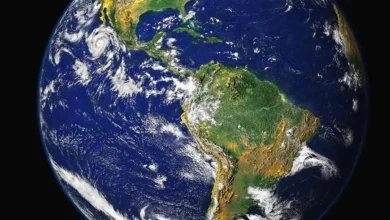The dark web between human rights defenders and criminals

Somewhere online, drugs, weapons and stolen confidential information are sold. That’s the “dark web.”
You might think the Internet is wide, but most of us use only about 5% of it, and it’s known as the “surface web.”
What about the rest?
There’s the “deep web,” where there’s data you can’t find through normal search.
There is a “dark web” where all identities are anonymous.
Anonymity may encourage criminals to trade illegal goods, but in return it helps those living under strict online control to talk about some cases that are illegal.
To access the dark web you need a special web browser, such as TOR, which hides the user’s identity and real location.
We spoke to TOR Executive Director Isabella Fernandez about their campaigns in support of human rights defenders.
Ragheb Ghandour, a cybersecurity specialist, told us about the theft and sale of personal data in the “dark web.”
In the Syrian capital of Damascus, the play “Adrenaline” presented the story of a young man who was forced to engage in violence in front of thousands of followers in a live broadcast on the “dark web.”





